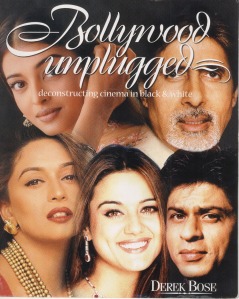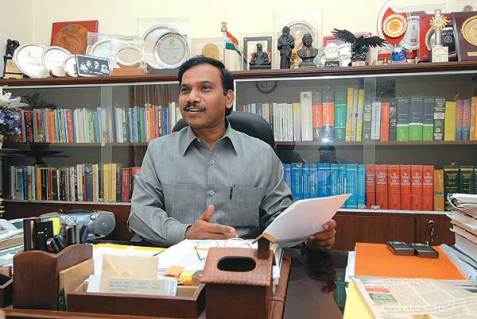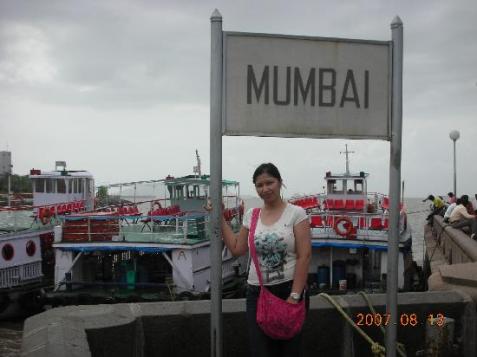+04302009-10-19T19:25:38+04:30312009b+04:30Mon, 19 Oct 2009 19:25:38 +0430 2, 2008 at 7.27 +04:3010 (Uncategorized)
 Will he or won’t he? This prolonged confusion regarding India’s position on emission curbs continue without an end. In the latest switch over in position the environment minister says in a letter to P.M (Crazy to be leaked to the media) that India should agree to the developed world’s insistence to cut emission curbs. While taking this cut demand India can reap dividends like compensation from the developed to the tune of 70 billion euros and its push to the UN security council. These matters need secret pursuit rather than communicating through the media. Although the minister seems to be shocked over the media leakage of his “privileged letter to the P.M”, this is how the agents get the insider information. India don’t need enemy spies. It is time to kill these kinds of silly acts and take a stable position on the climate change.
Will he or won’t he? This prolonged confusion regarding India’s position on emission curbs continue without an end. In the latest switch over in position the environment minister says in a letter to P.M (Crazy to be leaked to the media) that India should agree to the developed world’s insistence to cut emission curbs. While taking this cut demand India can reap dividends like compensation from the developed to the tune of 70 billion euros and its push to the UN security council. These matters need secret pursuit rather than communicating through the media. Although the minister seems to be shocked over the media leakage of his “privileged letter to the P.M”, this is how the agents get the insider information. India don’t need enemy spies. It is time to kill these kinds of silly acts and take a stable position on the climate change.
The Times of India writes (19 October 2009)
India seems to have begun to shuffle its feet in the climate change negotiations. Environment minister Jairam Ramesh, in a confidential letter to the PM, has suggested that India junk the Kyoto Protocol, delink itself from G77 — the 131-member bloc of developing nations — and take on greenhouse gas emission reduction commitments under a new deal without any counter guarantee of finances and technology.
This proposal comes just after he wrote to the PM suggesting India permit strict external scrutiny — just as is done under IMF and WTO — of the mitigation measures it takes at its own cost.
If accepted by the government, the minister’s proposal will radically shift India’s stand away from its position on climate negotiations that governments of all political hues have backed since 1990 and which was defended robustly as recently as at the UN talks in Bangkok earlier this month.
The minister has justified the proposed shift of gears by repeating his argument that India need not be seen as a deal-breaker and should try to curb emissions in its own interest. He has also pointed to the advantages — a permanent seat on the Security Council, for instance — that it can hope to reap with a changed stance.
In his October 13 letter to the PM, Ramesh argues for a deviation from the Kyoto Protocol under which only the developed countries — listed in Annexure 1 — are required to take obligations for emission cuts, saying that it would also help in a better alignment with the US. “We must welcome initiatives to bring the US into the mainstream, if need be through a special mechanism, without diluting basic Annex 1/non-Annex distinctions. If the Australian Proposal of a schedule maintains this basic distinction and nature of differential obligations we should have no great theological objections.”
When approached for his comments, the union minister responded on phone, “I am surprised that a privileged communication between me and the Prime Minister has found its way into the public domain. I am shocked. And whatever I had to say I have said to the PM.” He refused to speak further.
In his letter, Ramesh emphasizes his concern about India being seen as a bugbear for the developed countries in the climate negotiations. “India must listen more and speak less in negotiations” as its stance is “disfavoured by the developed countries, small island states and vulnerable countries. It takes away from India’s aspirations for permanent membership of the Security Council.”
The minister has also suggested diluting India’s strong stance — enshrined in the UN Framework Convention on Climate Convention (UNFCCC) — on demanding compensation from the industrialized countries in terms of funds and technology for having caused the climate change problem to begin with. He writes, “The position we take on international mitigation commitments only if supported by finance and technology needs to be nuanced simply because we need to mitigate in self-interest.”
Ramesh had previously suggested to the PM in a personal letter that India allow IMF and WTO-style review and `surveillance’ of even those emission control steps that it takes under its own legislation and at its cost.
Besides their radical import, his proposals are significant because they come just a week after India vigorously stuck to its known negotiating guns at the Bangkok round of negotiations. The UN talks in the Thai capital saw India leading the attack by G77 and China on the Australian Proposal which the environment minister now favours in his letter to the PM.
India along with other countries said that the industrialised countries by introducing the US and EU-backed Australian Proposal were attempting to “kill” the Kyoto Protocol, and alter the character of the UN Framework Convention. The Indian delegates said that the Australian Proposal, asking for a single legal instrument, would “unilaterally impose new commitments and burdens on developing countries and undermine the exiting convention”.
But now Ramesh has said India should “not stick with G77 but be embedded in G20. We should be pragmatic and constructive, not argumentative and polemical.” Interestingly, India had recently fought off immense pressure at the G20 talks to dilute its stand and give up its rights to financial compensation.
An internal document of the government cleared by the environment minister, drawing the “red lines” for the Bangkok negotiations clearly states that India will not allow commitments of the rich countries to be listed in a single instrument along with the `actions’ that India undertakes. In short, it said that the emission-cut obligations of the rich countries under the Kyoto Protocol should not be lumped with whatever the developing countries agree to do voluntarily — something that the Australian Proposal seeks to do away with.
The brief for Bangkok, which is with TOI, had said that the continuation of the Kyoto Protocol along with deep and ambitious cuts of the rich nations is of critical importance and non-negotiable. It also told the negotiators — again contrary to what Ramesh suggests to the PM — that they shall not agree to any international review of its unilateral and unsupported domestic action under any agreement.
The UN Framework Convention and the Kyoto Protocol distinguishes between the industrialized countries that are historically to blame for the accumulated greenhouse gases in the atmosphere. The Protocol, to which most countries, with the exception of US, are party, imposes strong emission reduction targets, obligations and non-compliance penalties on only the rich nations. It also follows the “polluters pay” principle where developing countries like India have no obligation to cut down emissions and must be compensated fully for any actions it might undertake voluntarily to reduce emissions.
The Australian Proposal runs contrary to the existing Kyoto Protocol and has been strongly backed by the US. Even EU has come around to back it. It demands that all the countries, including India, be put on merely one list and that all countries, with the exception of the least developed, take on commitments of same nature though of various degrees without any contingent guarantee of technology or finance in return.
In fact, another proposal backed by US demands that India instead contribute money to climate change actions for the rest of the world. The EU does not go that far, but has said that India should reduce its emissions substantially below `business as usual’ at mostly its own cost.
In his letter to the PM, the environment minister has said India will suffer no harm if the Australian Proposal does not dilute the distinction between Annex 1 countries and others, and recognises difference in obligations. Significantly, the Australian Proposal has no such provisions.
The proposal, which the US has lobbied India in bilateral forums and in multilateral meets to accept, asks all countries regardless of existing status, to take obligations. In its present form, when read with other proposals, it seeks to cap India’s emissions by 2020 and force further reductions later on. A cap on emissions automatically converts into a cap of how much energy India can use.
The US has demanded that each country undertake a domestic legislation — something that Ramesh too has now backed — and put that as part of its obligations under the Australian Proposal. The US is keen to do so as it is not a signatory to the Kyoto Protocol and does not want to adhere to a strict multilateral regime that imposes clear penalties and targets to be achieved. It’s been demanding that India, China, South Africa and Brazil also take on similar obligations before it joins any new international compact.
In Bangkok, the consternation of the Indian negotiators, the chief US negotiator had openly demanded the delegation relent from its stance, as the Indian environment minister had shown more flexibility in meetings during his US tour.
Observers feel that Indian environment minister’s proposals would sit well with the US position despite the difference in energy consumption levels of the two countries.
India, at present emits only 1.2 tonnes per capita of greenhouse gas emissions, as compared to 20 tonnes by the US. Acquiescence in any regime that does not differentiate between the super polluters like the US, on the one hand, and varying levels of developing countries on the other, would, lock the country into an arrangement where its growth options would be restricted.
The suggestion by the minister comes contrary to the internal position that the government had taken as recently as July while assessing how badly uncompensated mitigation would impact India’s economy.
In a note circulated within the government and to select Members of Parliament, it had said that mitigation action (as the Australia Proposal suggests) would lead to rise in the price of power and a drop in the production, impact the expansion of railways and adversely hit the prices of fertilizers in years to come. It would increase the cost of all goods, especially food items; the government assessed that it would increase unemployment especially in the rural agricultural sector. It had also warned that even if the country were to undertake such actions, it would have no impact on the costs of climate change adaptation that India would have to bear.
Interestingly, Ramesh’s concern about India being seen as the leader of G77 comes when India is hosting a meeting of different countries on October 22-23 to build consensus among the countries on what demands should be made at the UN negotiations on technology. On October 21, India is also holding a dialogue with China and signing an MoU on climate change.
The PM is also slated to visit the US next month where climate change is expected to be a key issue for discussion. The minister in his letter has suggested that just like he has signed MoUs with other countries, “India should sign an agreement on climate change cooperation (during the PM’s visit to US) and show willingness to engage.”




 Why to protest the CBI raid if there is no fishy deal in the telecom ministry? Karunanidhi the octagenrian chief minister of Tamil Nadu don’t lose even a minute to defend his family members. In these kinds of family rescue his health problem is not a deterrence. No idea from where he gets the energy to defend his tainted family members. A. Raja the union telecom minister for the past four years has been ruining the cash rich telecom sector. From the profit making BSNL he took the company to the begging stage. Such a non performing but a corrupt minister is ruining the potential public sector company. The Prime Minster Dr. Manmohan Singh has been dragged by Karunanidhi in his letter protesting CBI raids. Although the P.M has been compelled to utter few decent words about Raja when the UPA II was reluctant to add him as the minister the same words has been quoted as P.M’s genuine certificate to the scam tainted Raja. To save the publc telecom companies from further collapse, P.M must dismiss Raja from the ministry to save the industry.
Why to protest the CBI raid if there is no fishy deal in the telecom ministry? Karunanidhi the octagenrian chief minister of Tamil Nadu don’t lose even a minute to defend his family members. In these kinds of family rescue his health problem is not a deterrence. No idea from where he gets the energy to defend his tainted family members. A. Raja the union telecom minister for the past four years has been ruining the cash rich telecom sector. From the profit making BSNL he took the company to the begging stage. Such a non performing but a corrupt minister is ruining the potential public sector company. The Prime Minster Dr. Manmohan Singh has been dragged by Karunanidhi in his letter protesting CBI raids. Although the P.M has been compelled to utter few decent words about Raja when the UPA II was reluctant to add him as the minister the same words has been quoted as P.M’s genuine certificate to the scam tainted Raja. To save the publc telecom companies from further collapse, P.M must dismiss Raja from the ministry to save the industry.
 Sex and statistics go well. This is what Durex Global Sex Survey had proved. In a cross-country analysis it reveals hot and spicey information about the bed side adventures. From the number of times sexventured people to the environmental problems created by condoms to sex toys, the survey brings out interesting information.
Sex and statistics go well. This is what Durex Global Sex Survey had proved. In a cross-country analysis it reveals hot and spicey information about the bed side adventures. From the number of times sexventured people to the environmental problems created by condoms to sex toys, the survey brings out interesting information. Winning Nobel prize and accepting the kudos coming from all over the world is not an easy task. The world’s most coveted prize attracts everyone’s attention. The celebration of the winner won’t be confined to one nation or region. He or she belongs to the entire world. In this victory celebration, Venkatraman Ramakrishnan who won Noble prize for his path breaking protein research is an anguished man. Due to the thousands of congratulatory messages pouring into him, his email inbox got clogged. He was not able to access his official mails. Due to this tension he blasted people who ignored him during his student days. Understandable agony. But as a Noble winner he should also be a Noble human being to forget the bitter past and politely tell his fans that they can email messages in a separate id which can be created.
Winning Nobel prize and accepting the kudos coming from all over the world is not an easy task. The world’s most coveted prize attracts everyone’s attention. The celebration of the winner won’t be confined to one nation or region. He or she belongs to the entire world. In this victory celebration, Venkatraman Ramakrishnan who won Noble prize for his path breaking protein research is an anguished man. Due to the thousands of congratulatory messages pouring into him, his email inbox got clogged. He was not able to access his official mails. Due to this tension he blasted people who ignored him during his student days. Understandable agony. But as a Noble winner he should also be a Noble human being to forget the bitter past and politely tell his fans that they can email messages in a separate id which can be created. Will he or won’t he? This prolonged confusion regarding India’s position on emission curbs continue without an end. In the latest switch over in position the environment minister says in a letter to P.M (Crazy to be leaked to the media) that India should agree to the developed world’s insistence to cut emission curbs. While taking this cut demand India can reap dividends like compensation from the developed to the tune of 70 billion euros and its push to the UN security council. These matters need secret pursuit rather than communicating through the media. Although the minister seems to be shocked over the media leakage of his “privileged letter to the P.M”, this is how the agents get the insider information. India don’t need enemy spies. It is time to kill these kinds of silly acts and take a stable position on the climate change.
Will he or won’t he? This prolonged confusion regarding India’s position on emission curbs continue without an end. In the latest switch over in position the environment minister says in a letter to P.M (Crazy to be leaked to the media) that India should agree to the developed world’s insistence to cut emission curbs. While taking this cut demand India can reap dividends like compensation from the developed to the tune of 70 billion euros and its push to the UN security council. These matters need secret pursuit rather than communicating through the media. Although the minister seems to be shocked over the media leakage of his “privileged letter to the P.M”, this is how the agents get the insider information. India don’t need enemy spies. It is time to kill these kinds of silly acts and take a stable position on the climate change.